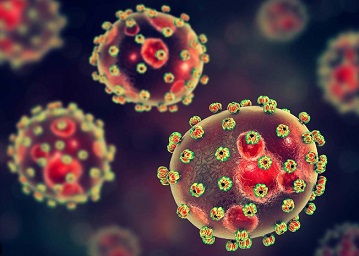Lassa Virus Arrives In France Via Soldier Returning From Military Duties In Africa
Nikhil Prasad Fact checked by:Thailand Medical News Team May 03, 2024 11 months, 3 weeks, 2 days, 17 hours, 27 minutes ago
Medical News: The recent hospitalization of a soldier in Saint-Mandé, Val-de-Marne, France, due to Lassa fever has raised significant concerns regarding the spread of this rare disease outside its typical West African domain. Lassa fever, caused by the Lassa virus, claims the lives of thousands annually in Africa, with a recent case involving a soldier returning from military duties abroad serving as a stark reminder of the global health challenges we face.
 Lassa Virus Arrives In France Via Soldier Returning From Military Duties In Africa
Lassa Virus Arrives In France Via Soldier Returning From Military Duties In Africa
French health experts and also activists’ groups are concerned that young French soldiers being sent for military duties in the African continent could not only be jeopardizing their health as Lassa fever infections are now becoming rampant in various parts of Africa but that these soldiers could become human vectors to cause the spread of the virus in France and elsewhere in Europe.
The Arrival and Initial Response
According to local
Medical News coverage, the soldier, whose travel details remain confidential, arrived back in France with symptoms of Lassa fever, prompting immediate medical attention at the Bégin military hospital in Saint-Mandé.
https://www.bfmtv.com/paris/info-bfmtv-un-homme-atteint-de-la-fievre-de-lassa-hospitalise-dans-le-val-de-marne_AN-202405020624.html
Despite the gravity of the situation, health officials reassure the public that the patient's condition is stable, alleviating some immediate concerns.
However, there are concerns that there might be others who have also been exposed to the Lassa virus and contact tracing ic currently been done along with health screenings of other French soldiers who had returned in the last three months.
Understanding Lassa Fever: Causes and Impact
Lassa fever, endemic to West Africa, is a viral disease with significant mortality rates, affecting between 100,000 to 300,000 individuals annually and claiming the lives of 5,000 to 6,000 people. A recent report by the Pulitzer Center in February this year claimed that Lassa fever infections were rising exponentially in West Africa.
https://pulitzercenter.org/stories/lassa-fever-surging-west-africa-researchers-want-know-why
Interestingly, the WHO has not been highlighting this growing health crisis much and neither have they been doing much about it except for mere occasional reports on their website!
Epidemiological Investigation and Containment Measures
In response to the soldier's case, an epidemiological investigation is underway to trace and monitor individuals who may have been exposed to the virus. High-risk contacts are being identified, monitored, and instructed to report any symptoms
promptly to prevent further transmission.
Managing Symptoms and Treatment Challenges
The symptoms of Lassa fever infections range from fever and vomiting to potential organ damage, making it a formidable health challenge.
Lassa fever presents challenges in diagnosis and treatment. Its nonspecific initial symptoms can delay identification, and the effectiveness of antiviral treatment, such as ribavirin, hinges on early administration. However, due to late diagnoses, treatment efficacy can be limited, emphasizing the need for improved diagnostic capabilities and rapid response protocols.
Global Impact and Historical Context
The emergence of the Lassa virus in 1969 underscores its relatively recent recognition in the medical community. Originating from Nigeria, the virus spread through contact with infected rodents, highlighting the complex interplay between human activities and infectious diseases.
Public Health Measures and Future Preparedness
The current case in France underscores the importance of robust public health measures and international cooperation in managing and preventing the spread of infectious diseases. Strengthening surveillance systems, enhancing diagnostic capabilities, and promoting global health equity are crucial components of future pandemic preparedness strategies.
Conclusion
The soldier's case of Lassa fever in France serves as a reminder of the interconnectedness of global health and the challenges posed by emerging infectious diseases. While containment efforts are underway, the incident highlights the ongoing need for vigilance, collaboration, and innovation in safeguarding public health on a global scale.
For the latest about
Lassa Fever, keep on logging to Thailand
Medical News.
